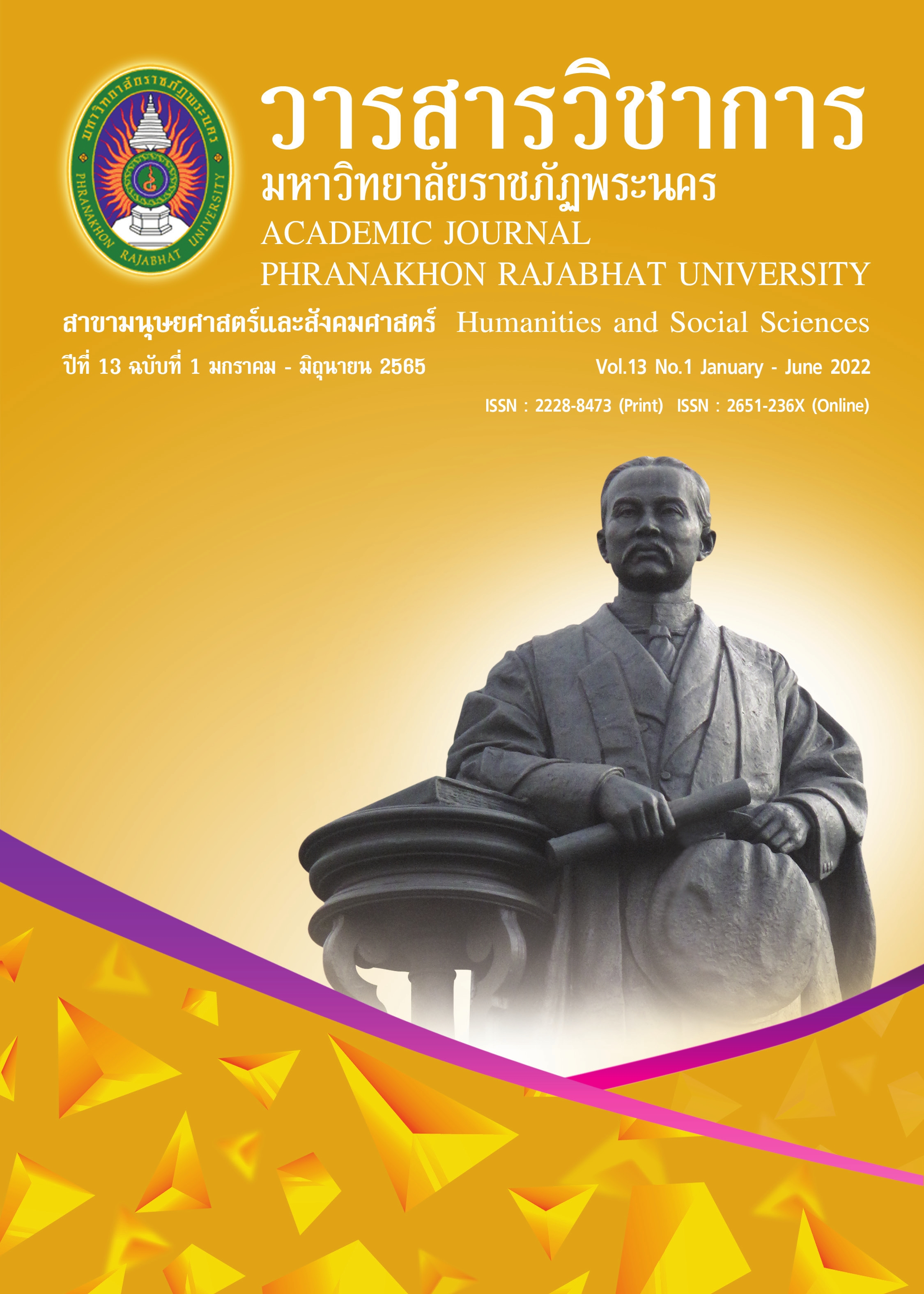ORGANIZING OUTDOOR ACTIVITIES WITH LOCAL GAMES UNDER THE BBL CONCEPT TO PROMOTE PROBLEM-SOLVING THINKING SKILLS FOR EARLY CHILDHOOD
Keywords:
Early Childhood, Organizing Outdoor Activities, Folk Play Activities, Problem-Solving SkillsAbstract
This research aimed to study the organization of outdoor activities by playing folk games according to BBL concept and compare problem-solving skills of preschool children before and after outdoor activities with folk games based on the concept of BBL. The target groups used in this study were 4 boys and 4 girls in primary school, aged between 5-6 years old, studying in Kindergarten 3 semester 2 in the academic year 2020 at Ban Chaliang Lap school in Mueang Phetchabun district, Phetchabun province under Phetchabun Primary Educational Service Area District Office 1, selected by specific selection method. The research tools were 20 lesson plans using outdoor activities with 20 folk games based on the concept of BBL and two sets of early childhood problem-solving skills assessment forms. The research model was pre and post tests in one group and data were analyzed using mean score of variance, standard deviation, and difference was tested using percentage.
The results showed that: 1) The outdoor activities by playing folk games based on BBL concept gained the quality of learning activity management plan at 4.57, which was at the highest level. The findings also showed that the duration and activity management were appropriate. 2) The comparative results of the children's problem-solving skills in overall before the activity management was at 54.69 (x ̅ = 8.75) while after the activity management was at 90.63 (x ̅= 14.50). This resulted in higher scores for problem solving skills accounted for 35.94 percent (x ̅ = 5.75), showing that after having organized outdoor activities with folk games based on the BBL concept, the children had higher problem-solving skills which was consistent with the hypothesis
References
Banett, S. J,& Johnson G. (1996). Futher Evidence on the Relationship Between Participation in Nutrition Education Programs and Changes in Dietary Behavior: Journal of family and consumer Science, 88(1),31.
Bualuang, S. (2014). “Effects of using outdoor games. EFFECT OF USING OUTDOOR GAMES ON PRESCHOOL CHILDREN'S COOPERATIVE BEHAVIORS.” Thesis of the degree program. Master of Arts Department of Educational Technology and Communication Faculty of Industrial Education Rajamangala University of Technology Thanyaburi.
Carison, J. (1999). "Cooperative Games : A Pathway to Improving Health " Professional School Counseling.
Champathes, R. (2017). “The Development of Teaching Models Using Activities folk games To promote social skills in helping preschool children in kindergarten year 2.” Master of Education Program Thesis Department of Curriculum and Instruction, Bansomdetchaopraya Rajabhat University.
Kaewkhumlek, S. (2016). “Development of experiences to promote the ability to Problem Solving and Social Skills of Early Childhood Children Using Folk Play.” Master of Education Program Thesis Research and Evaluation Department Graduate School, Maha Sarakham Rajabhat University.
Khammool, C. (2016). “Comparison of Language Abilities and Mathematics Abilities. and emotional intelligence of Kindergarten Year 2 students during the experience Learning by using the brain as a base and organizing learning experiences according to the concept of high scope.” Master's Degree Program Thesis Department of Curriculum and Instruction, Mahasarakham University.
Luenam, P. (2017). “Development of problem-solving skills and teamwork. with a pattern Cooperative learning by using TKO techniques for students in the science special classroom, grade 5.” Master of Education Program Thesis Computer Studies Graduate School, Maha Sarakham Rajabhat University
Ministry of Education. (2017). “Early Childhood Education Program 2017”. Bangkok: Printing House, Teachers Council of Thailand Ladprao.
Puangthong, S. (2016). “Development of Concepts and Problem Solving Skills on Reaction Rates. class chemistry Mathayom 5 using active learning management together with guided and open inquiry (Guided and Opened Inquiry).” Master of Science Program Thesis Department of Chemistry Studies, Faculty of Science, King Mongkut's University of Technology Thonburi.
Puttikul, P. (2019). “The development of teaching and learning models according to the concept of Steam education to promote Problem-solving thinking of early childhood children.” Phranakhon Rajabhat University.
Sirivej, N. (2017). “Learning management based on the STEM concept to promote academic achievement. Studying science and problem-solving skills of Mathayomsuksa 4 students.” Master of Education Program Thesis Department of Science Education, Maha Sarakham Rajabhat University.
Thiamtan, T. (2014). “The development of cooperative behavior of preschool children who have been organized activities Outdoors using local materials Buriram Rajabhat University Demonstration School.” Thesis of the Master of Education Program. Department of Early Childhood Education Management, Phranakhon Rajabhat University.
Wichaitha K. (2015). “The special result of the target game is that the target is a great target. Primary School, Demonstration School, Chiang Mai Rajabhat University” Sukhothai Thammathirat Open University.
Downloads
Published
How to Cite
Issue
Section
License
Copyright (c) 2022 Academic Journal Phranakhon Rajabhat University

This work is licensed under a Creative Commons Attribution-NonCommercial-NoDerivatives 4.0 International License.
"บทความวิชาการในวารสารฉบับนี้ ถือเป็นความรับผิดชอบของผู้เขียนเท่านั้น"
สงวนลิขสิทธิ์ตามพระราชบัญญัติลิขสิทธิ์




